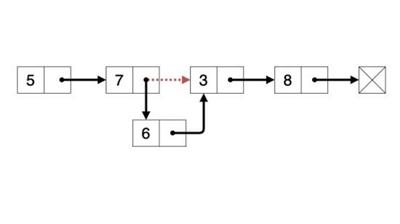
MP4 | Video: h264, 1280x720 | Audio: AAC, 44.1 KHz, 2 Ch
Genre: eLearning | Language: English + srt | Duration: 17 lectures (4h 43m) | Size: 1.76 GB
Build a library for working with Linked Lists using the C programming language
What you'll learn:Student will learn how to create and use linked lists in C by developing a library of functions.
RequirementsStudents should understand C programming., including dynamic memory allocation, typedef, and struct.
DescriptionIn this course you will be taught through step-by-step live coding examples how to create and use a library of functions for working with Linked Lists in the C programming language!
Linked Lists are an important type of data structure in computer science and computer programming, so before we walkthrough how to create and use them, we'll also cover what Linked Lists are, how they work, and some practical applications of Linked Lists. The bulk of the course is spent on learning how to work with Linked Lists using C, with over 3 hours of video covering a series of common functionalities explaining step-by-step how they are implemented. We'll also teach you how to package your functions together into a re-usable library, and how to document your code.
By the end of the course you will have a C library of Linked List functions that will help you build a great programming portfolio!
Linked List functionalities that are covered include:
Creating a linked list
Inserting nodes on the head and tail of a linked list
Deleting nodes from the head and tail of a linked list
Sorting a linked list
Deleting matching nodes from a linked list
Deleting duplicate nodes from a linked list
Reversing a linked list
Duplicating a linked list
Determining if a value is in a linked list
...and many others, over 20 functions in total.
Who this course is forStudents interested in learning about data structures in C programming.
Download link:
Só visivel para registados e com resposta ao tópico.Only visible to registered and with a reply to the topic.Links are Interchangeable - No Password - Single Extraction

